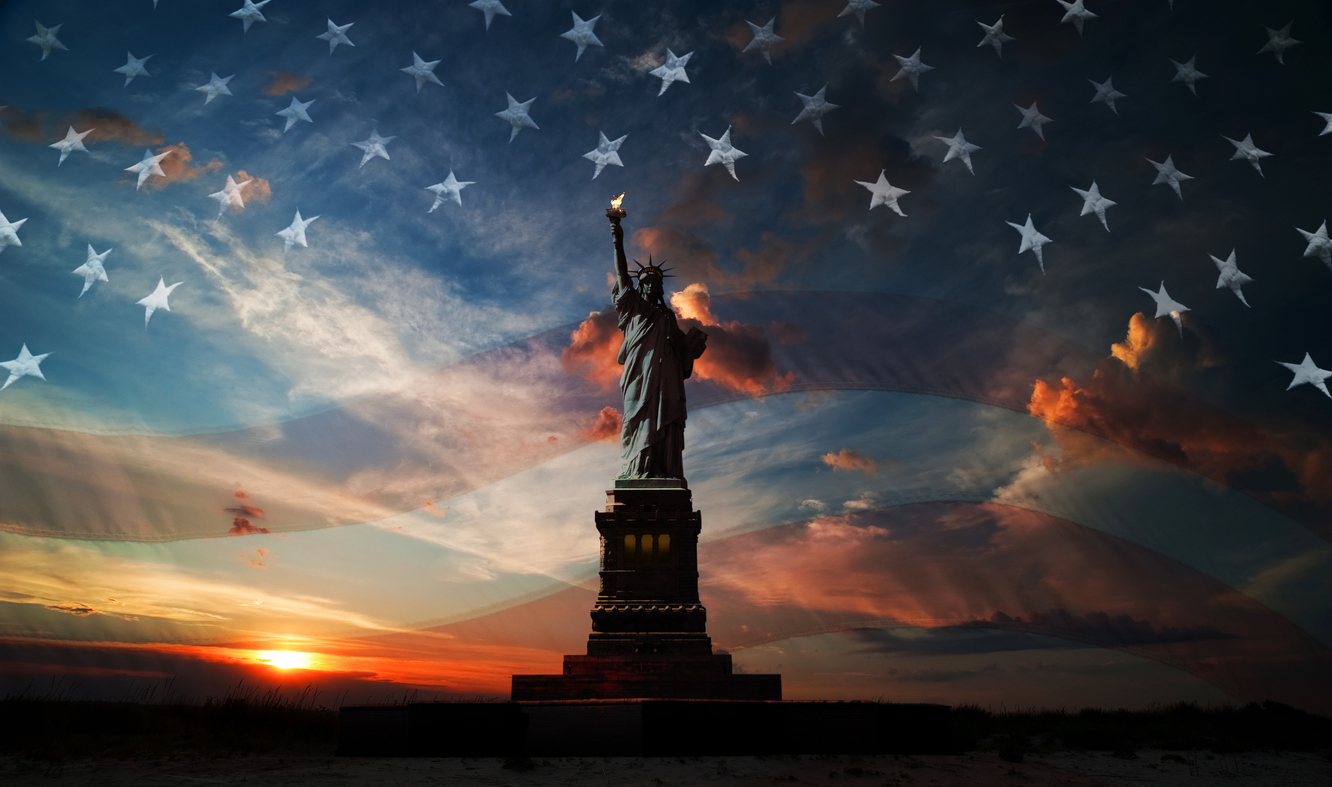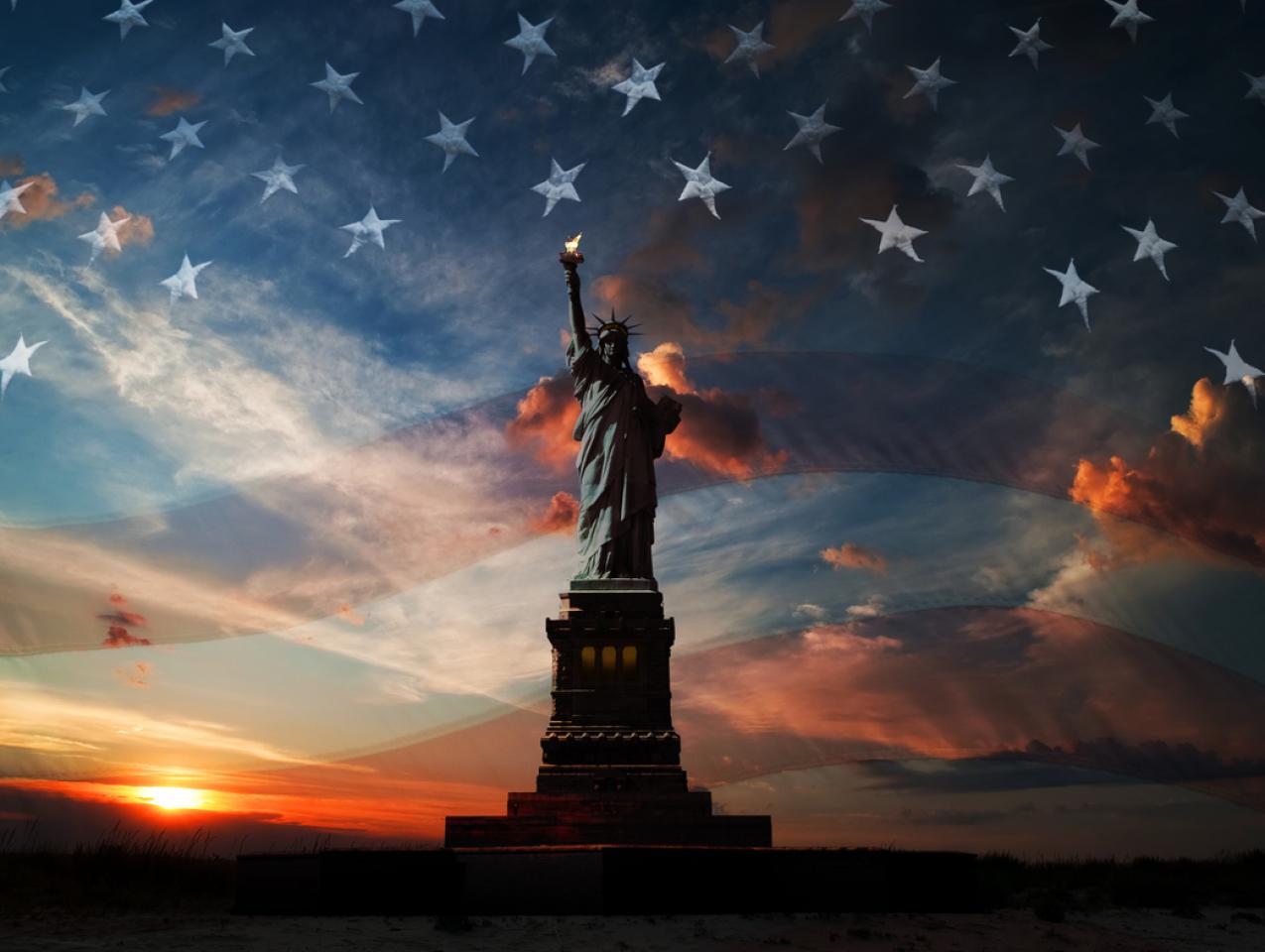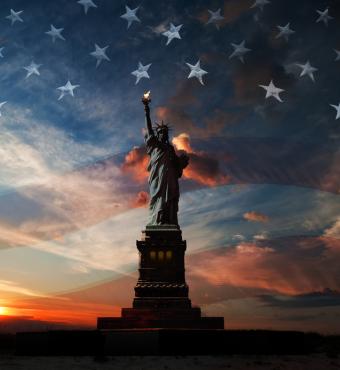- Democracy
- Innovation
- Revitalizing American Institutions
- Understanding Public Opinion
- Understanding the Effects of Technology on Economics and Governance
Larry Diamond is the William L. Clayton Senior Fellow at the Hoover Institution and a lifelong scholar of the global trends that affect freedom and democracy. He is a frequent collaborator with Hoover’s Center for Revitalizing American Institutions. He spoke about the state of democracy around the globe, how smartphones and social media polarize people, and threats to democracy, civil rights, and the rule of law.
Chris Herhalt: Last year, you wrote about how 2024 was a “year of elections” around the world that were important to see in the aggregate. Did those results live up to your expectations? And what do you make of global voting these past few months?
Larry Diamond: I think we remain in a very mixed and contested picture in terms of national developments, particularly electoral developments in different countries and their implications for freedom and democracy. It’s kind of “some steps forward and some steps back.” I think the Law and Justice party in Poland, which ruled for eight years with fairly comprehensive control of government, had an authoritarian project. They weren’t able to fully execute it the way Viktor Orbán did in Hungary because they weren’t able to amend the constitution the way Orbán was able to do. But they did tremendous damage to democratic institutions and values in Poland, and it will take a long time to repair and correct their normative and institutional violations. The Civic Coalition came to power in Poland in the parliamentary elections in October 2023, and that seemed to provide an opportunity to put Poland back on a path of liberal democracy. But then voters elected the presidential candidate of Law and Justice. So, it’s a very murky picture now in Poland.
The Czech Republic had a presidential election some years ago that, again, brought a very democratically committed figure to the presidency, but now there’s a lot of illiberal popular sentiment, swirling and contesting from multiple perspectives.
Slovakia elected a very democratically committed figure, a constitutional lawyer—kind of countering what had been an authoritarian populist interlude under a pro-Russian, illiberal, populist prime minister in more of the Orbán mold, Robert Fico. Fico was toppled and now he’s back in power.
It’s just game on all over the place. In Georgia, where many of us at Stanford have had deep, active ties, you have—I don’t know any other word for it—a criminally corrupt and compromised government led by a billionaire pro-Russian oligarch, Bidzina Ivanishvili, who has ravaged democracy and put many sincere, committed democrats at very great personal risk. And Vladimir Putin may not have swallowed the country in his military adventures, but he has definitely nibbled away at its autonomy and democracy and freedom. It is really very mixed.
Chris Herhalt: You’ve spoken about rise of social-media platforms and how electorates started to polarize as social-media use became ubiquitous. Now that social media is fifteen years old, at least in the industrialized world, do you still see that trend? What can we do to limit the use of social media and the way it polarizes people?
Larry Diamond: The most obvious thing is what Jonathan Haidt and many others have been urging. Psychologists, psychiatrists, and youth specialists have been urging parents to just take these damned instruments out of the hands of their kids. No child, in my opinion, should be allowed to have a social-media account or a smartphone with search and information-polluting potential before at least age sixteen.
We’re in an existential battle to raise a generation of young people who are less lonely, depressed, alienated, cynical, and obsessed with how they’re viewed by their peers. It’s affecting higher education. Our students don’t want to read a lot because their brains are now wired to get dopamine hits from their mobile phones. They’re constantly tweeting and flipping from one platform and post to another. It’s unhealthy for learning, unhealthy for psychological and personal development, and super unhealthy for our democracy. It’s wiring us to be polarized, intolerant, and incapable of having open-ended, thoughtful, mutually respectful conversations across difference.
The other thing that needs to be said is that we adults who didn’t grow up with this deformed information environment but have allowed our practices and behavior to be degraded by it—we need to rise to a higher standard too.
Chris Herhalt: You were heavily involved in the review about anti-Semitism at Stanford. What do you think about the federal government withholding funding from universities? And how do you feel about responses to concerns about free speech and anti-Semitism at many universities?
Larry Diamond: Harvard and other elite universities have had a lot to answer for in their failure to protect Jewish students and Israeli faculty, scholars, and students. They tolerated very bad and discriminatory behavior, in some cases, and indulged what was clearly a hostile environment for these communities’ learning and work environment. I think Harvard has been moving to address these problems. But this is not about Harvard’s anti-Semitism, which created, I think, a convenient excuse for the administration and President Trump personally to victimize and punish a major symbol. Harvard may be the leading symbol of the elite Eastern liberal establishment that Trump and so many other people in his movement despise and want to destroy.
It’s legitimate to raise questions about the lack of ideological balance on the faculty, the lack of adequate vigilance to respond to discrimination, the need for more ideological diversity, and so on. But that’s not really the goal. The goal is punishment, domination, intimidation, and victimization of Harvard to strike fear and quiescence in everybody else. And this is a hallmark of an authoritarian project and an authoritarian mentality. I also think it’s illegal and unconstitutional.
Chris Herhalt: If you were asked for input into what you would do to pull the United States away from this trajectory, what would you say?
Larry Diamond: The trajectory we are on is not going to be halted by some deus ex machina or some divine intervention. It only is halted by countervailing power or electoral alternation. Those are the two options. I don’t want to say that the only pathway is to defeat Trump in an election, along with the politicians who are giving him a blank check to abuse power, because then it seems like you’re partisan. You’re saying that the only way to stop the assaults on democracy in the United States is to bring the other party to power. I don’t want to say that. What I want to say is that he is pursuing an authoritarian project and that either Congress, the courts, or civil society must draw much more vigorous and forthright boundaries around his behavior to say, you can’t push this theory of the unitary executive to its power-monopolizing apogee.
Now, if you’re looking more institutionally and longer term, we have to get electoral reform in the United States to depolarize our politics and create incentives for more partisan cooperation, compromise, civility, and cross-partisan coalitions. This is why I favor ranked-choice voting: I think it’s more likely to elect moderate candidates who will appeal broadly to the electorate. This is why I am adamantly and passionately in favor of eliminating partisan primaries.
Chris Herhalt: What do you have in the works?
Larry Diamond: Well, I think we have a lot of work to do on university campuses to build a culture of civil discourse, rational inquiry, debate, and so on. So I am very supportive of Stanford’s efforts through programs like the COLLEGE [civic, liberal, and global education] first-year program; ePluribus Stanford is another one. And then the Stanford Civics Initiative that our own Josh Ober has co-founded and co-leads strives to build these skills, sensitivities, norms, and intellectual and social muscles of debate, along with a tolerance for pluralism and mutual respect, focusing on the issues of our time. Our Deliberative Democracy Lab based at the Center on Democracy, Development, and the Rule of Law is continuing to do a number of deliberations, including among young people, to practice these skills and apply a model of evidence-based discourse and rational, respectful inquiry to some of the policy debates of our time, including what to do about artificial intelligence.
I think intellectuals, scholars, people in the academy, whatever their personal or partisan beliefs and orientations, have an overriding obligation to stand up for the Constitution, the rule of law, and the principles of a civic culture—for norms of mutual respect and personal freedom. And if we don’t do it, who’s going to do it?
This interview was edited for length and clarity.

















